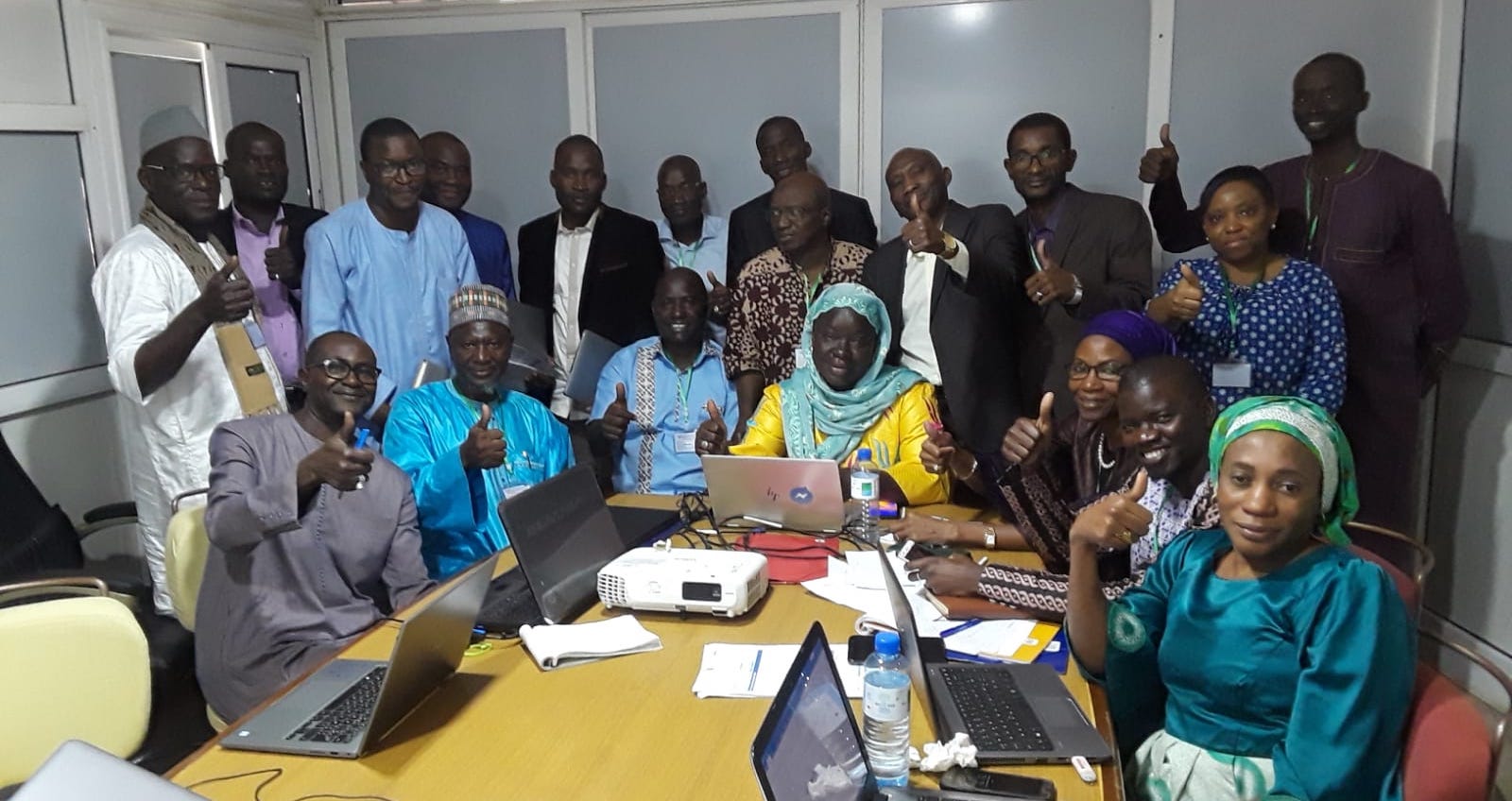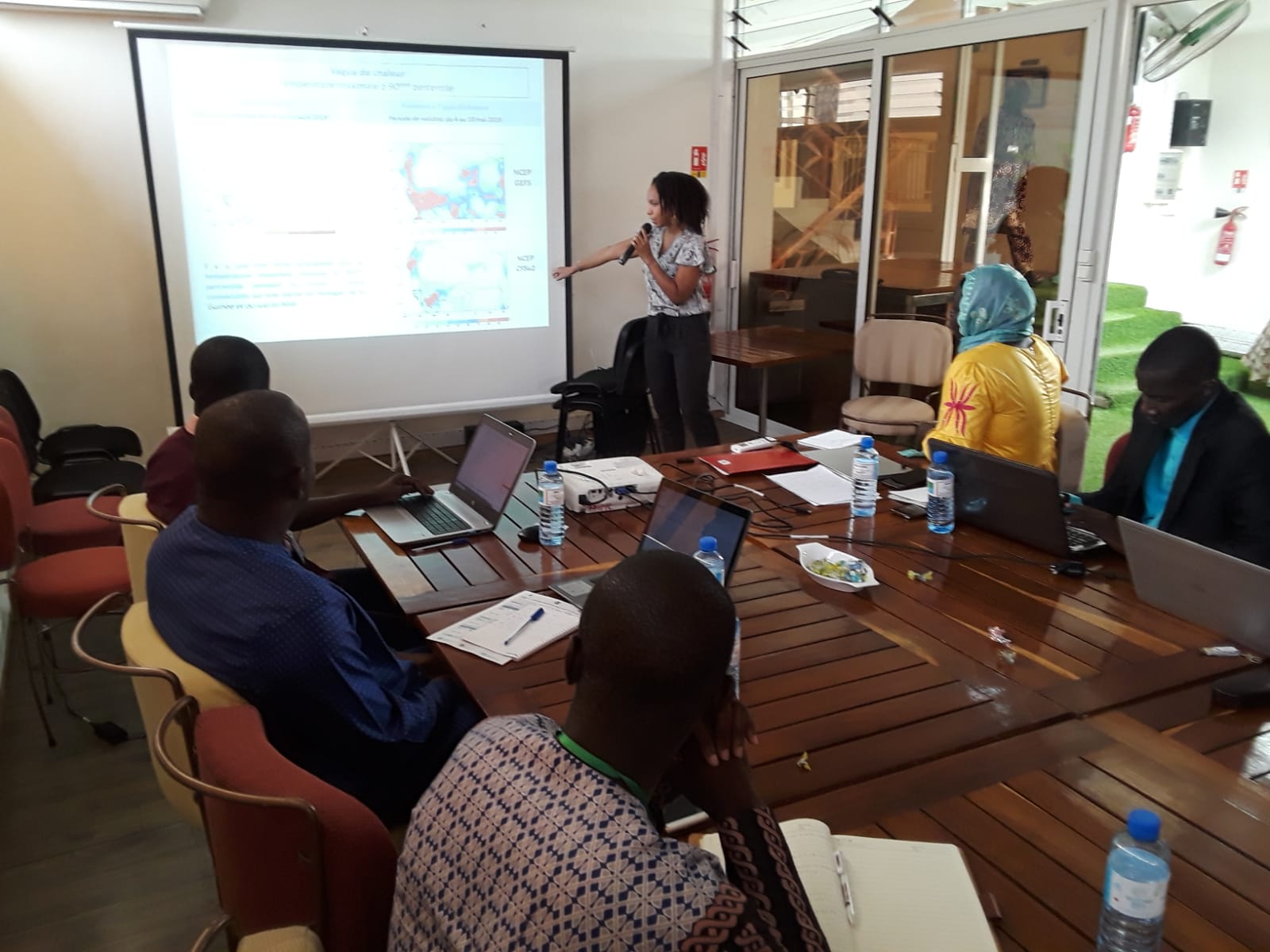Heatwaves and Health in the Sahel
Published: December 13, 2019
The Ministry of Health of Senegal and The Senegal National Agency of Civil Aviation and Meteorology (ANACIM), conducted a regional training workshop on heatwaves and impacts on health, from 3 – 5 December 2019, in collaboration with the US National Oceanic and Atmospheric Administration (NOAA) Climate Prediction Center.

The training workshop brought together meteorologists and health professionals from Burkina Faso, Mali, Niger, and Senegal to learn how to use heatwave forecasts to prepare a heatwave early warning system and issue outlooks of impacts of extreme heat on human health.
The workshop updated 40 participants on:
- the effects of heatwaves on human health, including an increase in heat related illnesses and mortality in vulnerable areas;
- the basic understanding of heatwaves with a proposed definition that serves as a basis for the forecasting of heat waves and health impacts (e.g. heatwaves were defined as periods of at least 3 consecutive days where the (NOAA) heat index reached 40°C or the maximum air temperature reached or exceeded the 90th percentile using 1998-2018 mean).
Scientific presentations and discussions reviewed climate, heat, and the brain; and heat impacts on respiratory and cardiovascular diseases. and generally the problems presented by heatwaves in the Sahel region. The National Framework for Climate Services (NFCS) and work to develop early warning systems in various socioeconomic sectors was discussed.
The workshop showcased the predictability of heatwaves at least 8 days in advance in the Sahel region, suggesting that heatwave forecasts at this time scale are reliable enough to develop heat health early warning systems.

A breakout group of meteorologists examined past heatwave events according to the definition provided, reviewed forecasting tools, and prepared forecasts at week-2.
Another group of professionals including health professionals, environmentalists, social workers, communication specialists worked to create a legend for the health impacts risk map and an informational heatwave flyer.
Two mixed groups (meteorologists and experts on health related issues) worked towards developing outlooks of health impacts based on the heatwave forecasts. These outlooks can serve as a basis for issuing an early warning bulletin.
Challenges, opportunities, and strategies to implement an effective heat health early warning system were discussed. The existing NFCS, ratified by various government agencies, provides an excellent opportunity to form a health sub-working group to work with meteorologists on developing heat-health early warning. Meteorological services will work with their Ministries of Health to discuss way forward toward forming the sub-working group on climate and health and to prepare experimental outlooks of heat impacts on health starting from the next heat season (February – May 2020).
Meteorologists and health professionals, including clinical medical doctors, medical research doctors, social workers, health economists, environmental scientists, and communication specialists from six countries attended the Workshop, which was hosted by the Direction Générale de la Santé (DGS) and led by the Climate Prediction Center of the National Oceanic and Atmospheric Administration (NOAA).
Participants were drawn from the experts in various government national agencies. The NOAA’s Climate Program Office and the National Weather Service funded the Workshop through the Service Level Agreement (SLA). The University Corporation for Atmospheric Research (UCAR) worked with the Senegal DGS to arrange for the logistics of the workshop.